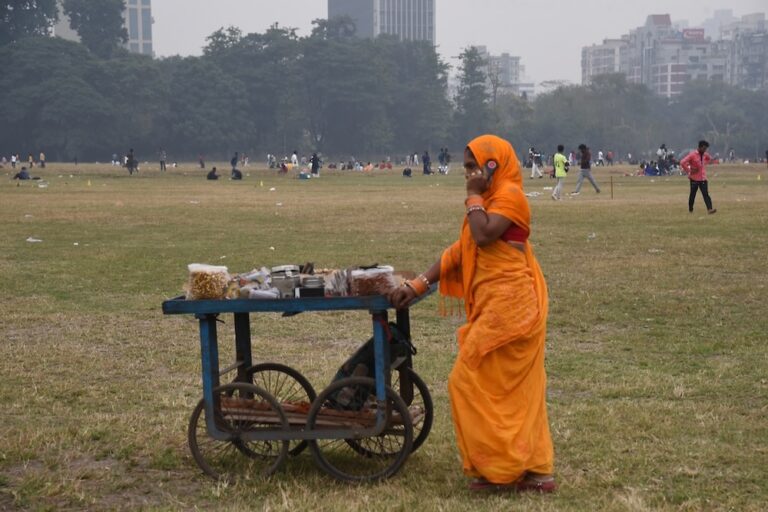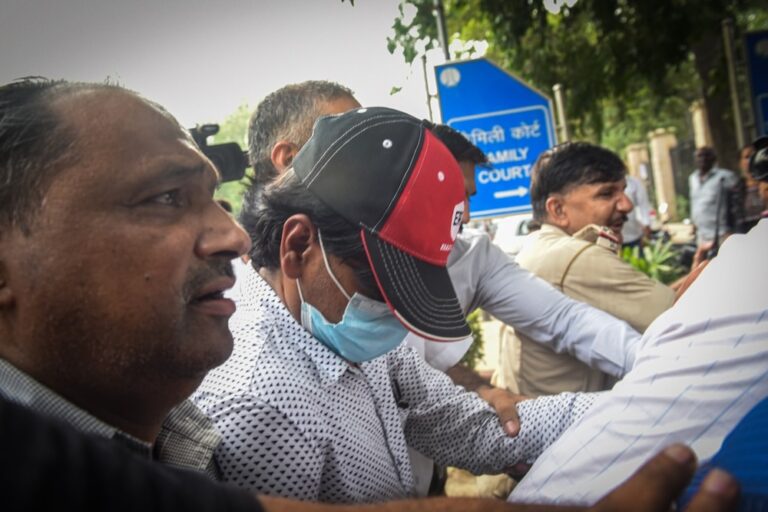(IPI/IFEX) – The following is an 11 November 2003 IPI letter to Indian Prime Minister Atal Behari Vajpayee: H.E. Atal Behari Vajpayee Prime Minister Office of the Prime Minister New Delhi 110 011 India Fax: + 91 11 301 6857 Vienna, 11 November 2003 Your Excellency, The International Press Institute (IPI), the global network of […]
(IPI/IFEX) – The following is an 11 November 2003 IPI letter to Indian Prime Minister Atal Behari Vajpayee:
H.E. Atal Behari Vajpayee
Prime Minister
Office of the Prime Minister
New Delhi 110 011
India
Fax: + 91 11 301 6857
Vienna, 11 November 2003
Your Excellency,
The International Press Institute (IPI), the global network of editors, media executives and leading journalists in over 120 countries, is greatly concerned about the decision of the Tamil Nadu Assembly to pass a resolution on 7 November ordering the arrest and imprisonment for 15 days of six journalists, including a publisher, for allegedly lowering the prestige of the Legislature and the speaker of the Parliament.
After an April editorial, charges of breach of privilege and “gross contempt” of the House were made against five journalists of one of India’s most respected dailies, The Hindu. An editor from the Tamil regional daily Murasoli was also charged with slander. According to the Tamil Nadu Assembly the article published by the newspapers “cast a slur on the chief minister’s action in the assembly.” According to information provided to IPI, after a resolution sentencing the journalists was adopted in the House, Speaker K. Kalimuthu issued arrest warrants against Editor N. Ravi, Executive Editor Malini Parthasarathy, Publisher S. Rangarajan, Chief of Bureau V. Jayant, and Special Correspondent Radha Venkatesan of The Hindu.
The editorial was based on an article written by Jayant, and Venkatesan, who is presently abroad. The House had taken offence at the article in The Hindu and, following an order by Kalimuthu, also sought the arrest of S. Selvam, editor of the Murasoli newspaper, owned by the Dravida Munnetra Kazhagan (DMK), the state’s main opposition party, for publishing the translated version of the editorial in The Hindu. The Assembly press passes of all the reporters involved were suspended for 15 days. Furthermore, on 7 November, 20 police officers searched the offices of The Hindu in Madras, the state capital of Tamil Nadu. However, journalists managed to evade arrest by fleeing to secret addresses. On the following day the car of N. Ram, the editor-in-chief of The Hindu, was also searched by police officers. On 10 November, the Supreme Court of India stayed the execution of the arrest warrants. The decision of the court, comprised of two sitting judges, came after widespread protests at the announcement of the Tamil Nadu Assembly.
Although the journalists are unlikely to be imprisoned, IPI remains concerned at the situation in the state of Tamil Nadu. While many assemblies around the globe retain the right to regulate the behaviour of their members, the use of an assembly resolution to punish the press is deeply troubling. Journalists attempting to report on the daily work of an assembly should not have to face arrest and imprisonment merely because the assembly dislikes the tone of their articles or editorials.
IPI would remind the Tamil Nadu Assembly that journalists have a fundamental right to report freely without fear of government intimidation or harassment. The actions of both Kalimuthu and the Tamil Nadu Assembly have jeopardised this internationally accepted principle and risked damaging India’s reputation as a whole. Bearing the above in mind, IPI calls on the Indian government and state assemblies to amend their regulations so that journalists cannot be arrested and imprisoned for allegedly impugning an assembly or its members. IPI also wishes to point out that such regulations are in effect “insult laws”, which have been widely condemned and banned in many countries.
Aside from the point that an amorphous political entity such as an assembly should not be entitled to a legal personality that can be impugned, IPI feels that the civil courts are the right and proper forum for disputes arising from defamation of character. This is because civil hearings do not normally carry the threat of imprisonment for journalists who are merely carrying out their professional duties.
With the above in mind, IPI calls on Your Excellency to condemn the attempt to stifle the media’s right to report freely in accordance with Article 19 of the United Nations Universal Declaration of Human Rights and the Indian Constitution. Finally, IPI notes that in the present case, the arrest warrants have only been “stayed” by the Supreme Court of India. Therefore, IPI invites Your Excellency to work with the proper authorities to ensure that the charges against the journalists of the newspapers The Hindu and Murasoli are discontinued and that all reporting privileges are reinstated forthwith.
We thank you for your attention.
Yours sincerely,
Johann P. Fritz
Director


